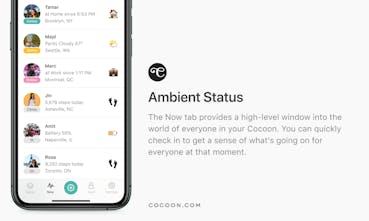Being written in public and expanded on.
There’s no shortage of talk on how audio is the prevailing future of the web. Clubhouse especially is bringing rise to this future, but so is Roadtrip, Capiche, DialUp, and even Omegle. We have long sought to use the limitless internet, unbounded by geography, to transmit ourselves and being long and far––for work, play, sex, attention, and the sake of longing.
Facetime and calls bind one generation, and I can’t help but feel like I’m an internet native boxed to another end. It was hard for me to feel safe in many spaces and I was accessing the internet late at night where I was desperate to distance myself but explore the world in hushed tones. Instead of raucous laughter over tangled earphones or the love of displaying myself all over an iPad, the internet felt most intimate to me when I was with people over long drabbles of text and chatlogs now irretrievable. I communicated and built culture around trends in text, because Americanizing myself in voice was difficult and the internet as a place of escape made me dread hearing myself. I was utterly unconfident, more of a lurker, and treaded amongst many communities at once –– only seen if I wanted to be.
Our current social tools make this kind of ghastly lurking a lot less possible––and I get it, it’s undesirable. On Discord, I have to go Invisible, but my name still treads in every community I’m in. On Twitter, it’s maintaining private lists and reading through them instead of following people. Reddit and 4chan are still the best places where I can maintain this behavior since you only are seen when you truly want to be (though they are the hardest to monetize). While ghostly, they are still the most tight-knit communities that exist. The cultures, trends, and inner knowledge present within a subreddit easily rival the sense of community in smaller Discord groups. It manages to feel “tiny” and welcoming, even if numerically it’s far more than that. While there’s sections like RPAN that allow for unfiltered livestreaming, new user subreddits that let you broadcast every single thing you feel, it’s still one of the truest spaces there is that product people are frantically trying to unbundle.

Most Discord servers and subreddits don’t require a voice for you to be embedded in the culture. Your voice and sound is a sacred thing, easily identifiable––something I struggle with when meeting up with people. I know, it’s ideal for meetings and quickly getting rid of the tension and miscues from text––but there’s something special and comforting with instead navigating relationships and cultivating them through text.

I played League of Legends for years with the same circle of friends, never really speaking to them in voice. We would get together without fail every single night, even more in the weekends, literally playing 12+ hours straight for around five years. Some of my closest friends in the world are people I’ve never heard. Out of timezones and hecticness, my best friends are people who I share voice conversations with (and we went to the same middle-high school together) that only comprise a tiny sliver of all our conversations––the rest happen in online logs. Mentoring and teaching people, I also come to understand how advice through text is more meaningful and permanent (things I desire, even if the internet exists to resist them) than spoken words. Disconnect and connectivity make it harder to speak to people I love back home, but the words we exchange through text are never any less real. I like to think that I also exist more as a person to be known in the written form, never heard or seen by the vast majority of people who will know me. I dig that idea.
So here’s a case for tiny, intimate internet spaces. “Tiny” does not have to exist in numbers, it can also exist in cultures. Little forums and groups tucked away and servicing friend circles and niche interests, virtual avatars that act as extensions of ourselves without the labor of presence, the ability to weave between circles with many pseudonyms (as done on archiveofourown), concentrated updates and dialogues that prioritize safety, immediacy, and privacy.
Letting people craft and segment their identities to fit different online spaces essentially mirrors what we do in our real life bubbles. Decentralizing identity and anonymizing ourselves is a powerful thing.
As younger generations become increasingly onlineTM, we’ll see the needs for spaces like these to safeguard the experience of internet exploration. Where we explore our identities, touch on global issues, and uncover global frames of knowledge––we do so in chat, learned cultures, and soft conversations––not radio and the out loud.

It’s easy to read social media as a place where young people are constantly vying for social capital, but the class of people who perform for an audience is a small fragment compared to the hundreds of people who dwell, watch, and later depart to go to their own spaces –– if they have any. And even if safety and privacy aren’t immediate, obvious needs for the masses wistfully surfing the internet today––is it a cruel thing to want to offer this as we approach a decade of retracted deference to our data?
…
Things are obviously a lot different now. I’m unafraid to stream games live (and annoy my friends in doing so), have my face plastered across dozens of loosely interlinked social networks, and am one of the most easily investigable yet completely boring people you may find on the internet. There’s simply a case to be made for spaces where we can cradle ourselves in, carving out universes and spaces and shared languages through text and image and memes and all the glory of the infinite mediums we have at hand… these days, I know I am all for it, as I have been built by it.

Comments
[…] we must recognize the love that is present. It is why I myself move towards a poetics of the web, have written about tiny internets for years, and have retreated to the internet to invent these worlds for as long as I can remember. […]